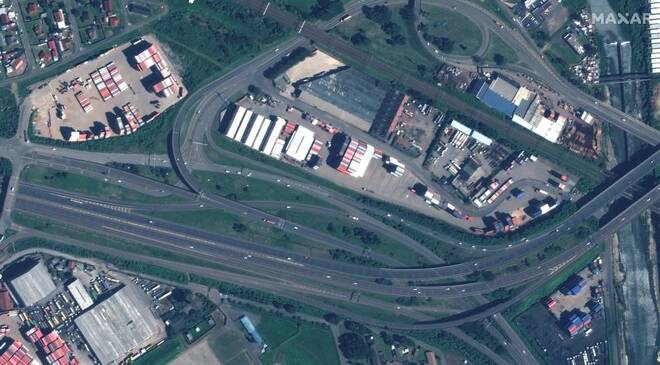Advertisement
Advertisement
India’s UPL applies to flush toxic pesticides into South African sea
By:
JOHANNESBURG (Reuters) - Indian agrochemicals manufacturer UPL Ltd has applied for permission to flush water contaminated by a toxic pesticides spill in South Africa's city of Durban directly into the sea or the sewerage system, the company said on Saturday.
JOHANNESBURG (Reuters) – Indian agrochemicals manufacturer UPL Ltd has applied for permission to flush water contaminated by a toxic pesticides spill in South Africa’s city of Durban directly into the sea or the sewerage system, the company said on Saturday.
The municipal authorities have judged the pesticides — which were being contained in a dam that overflowed during devastating floods that struck the eastern port city earlier this month — as being “highly toxic to the environment”.
Looters set fire to a UPL warehouse containing the pesticides during a wave of looting and arson in July last year. That caused a chemical spill which shut down beaches, released severe air pollution and killed marine wildlife. Sulphur dioxide, nitrogen dioxide, hydrogen chloride and hydrogen cyanide were among the chemicals released into the dam.
UPL told Reuters in an emailed statement that the “toxicity testing of April 11 showed extremely low levels of marine toxicity, capable of being completely neutralised” by dilution.
The municipality of eThekwini, which includes Durban, did not immediately respond to a request for comment.
UPL “has discussed with authorities disposal by various methods (including) to sewer and or sea outfall via the municipal sewer system,” a company representative said, adding that “the entire proposal is based on the general acceptance by both the authorities and UPL that it is nonsensical” to truck 5224 cubic metres of contaminated water to landfills.
Environmental scientists are increasingly concerned about the contamination of the oceans by industrial chemicals, including pesticides, fertilizers, detergents and petroleum products.
(Reporting by Promit Mukherjee; Writing by Tim Cocks; Editing by Mike Harrison)
About the Author
Reuterscontributor
Reuters, the news and media division of Thomson Reuters, is the world’s largest international multimedia news provider reaching more than one billion people every day. Reuters provides trusted business, financial, national, and international news to professionals via Thomson Reuters desktops, the world's media organizations, and directly to consumers at Reuters.com and via Reuters TV. Learn more about Thomson Reuters products:
Advertisement
